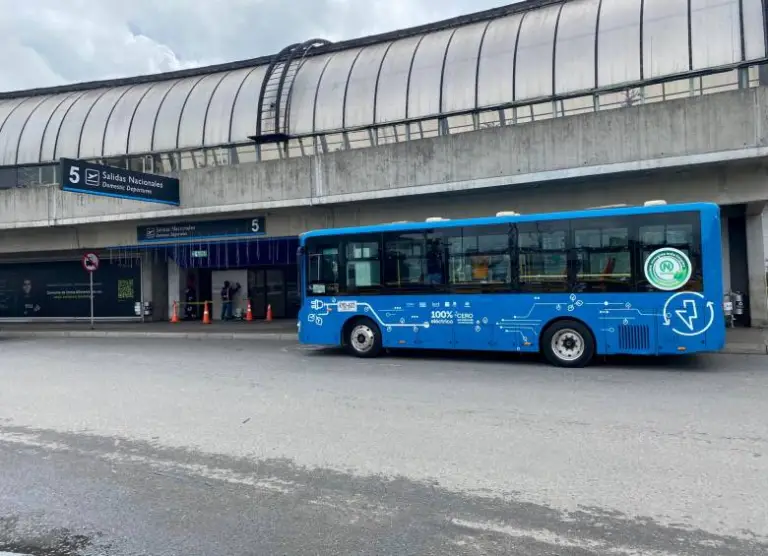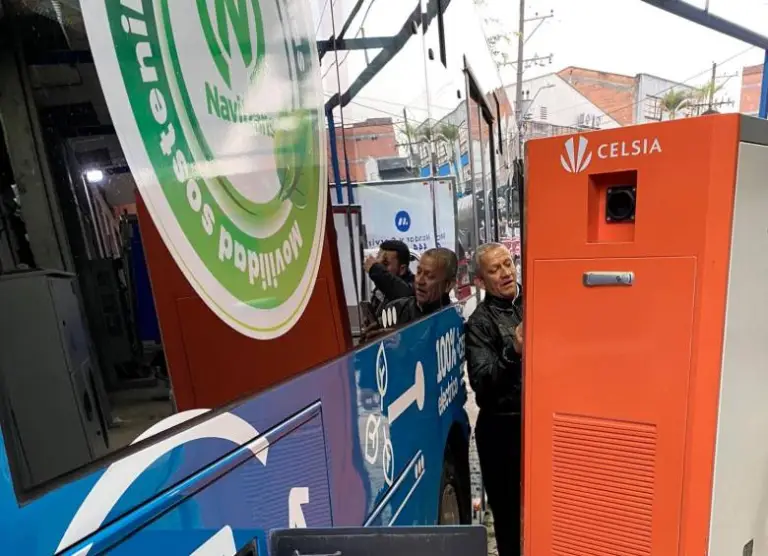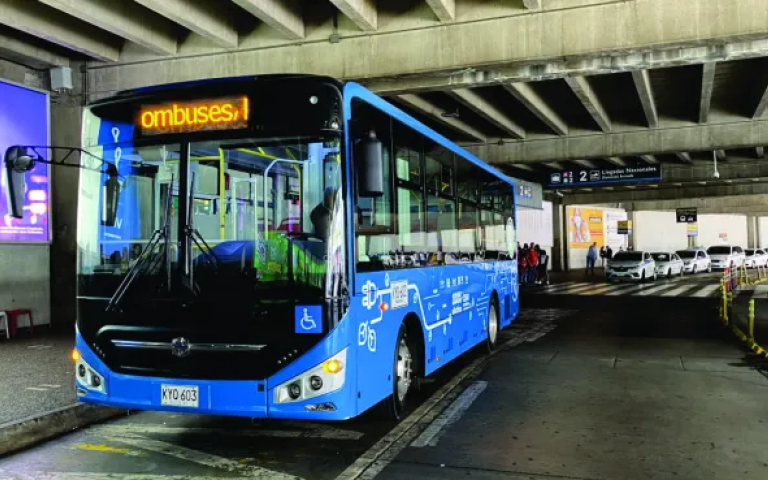In recent days, the pilot test began with a Zhongtong LCK6850EVG electric bus, which will operate on the route between Medellín and the José María Córdova airport located in the municipality of Rionegro. Wilson Mejía, manager of Combuses, a traditional transport operator to the air terminal, pointed out that "the pilot plan that will operate for 10 days is a milestone because for the first time a commuter route puts an electric bus into service, betting on clean energy ”

Daniel Santamaría, manager of Navitrans, stated that "in addition to the environmental benefits, the commissioning of this vehicle offers lower operating costs, reduced maintenance costs and lower energy consumption."
The bus that is being tested is 8.9 meters long, and comes fully-bodied from the plant in China. It has capacity for up to 28 seated passengers and has 255Kv/h batteries from the CATL provider; and its power can oscillate between 194 and 320HP depending on the number of engines installed.
For Fernando Vélez, electric mobility leader at Celsia, the company that provides the charging infrastructure for the unit, "this initiative is important and demonstrates the interest of the energy sector in transforming public transport infrastructure."

In the 10 days of testing that this route will operate, the efficiency, autonomy and regeneration of the electrical charge will be evaluated, which is achieved when the bus's braking system is activated, which converts kinetic energy into electrical current.
The main and medium-term objective is to migrate the entire transport fleet that covers this route, which will be carried out in phases and in a period of just three years.
It should be remembered that Medellín has a fleet of 69 electric buses in operation that are already operated by the Metro system for mass transportation, which thanks to this technology has stopped emitting 147 tons of CO2 per year and 3.57 kilograms of particulate matter into the air. PM2.5.

